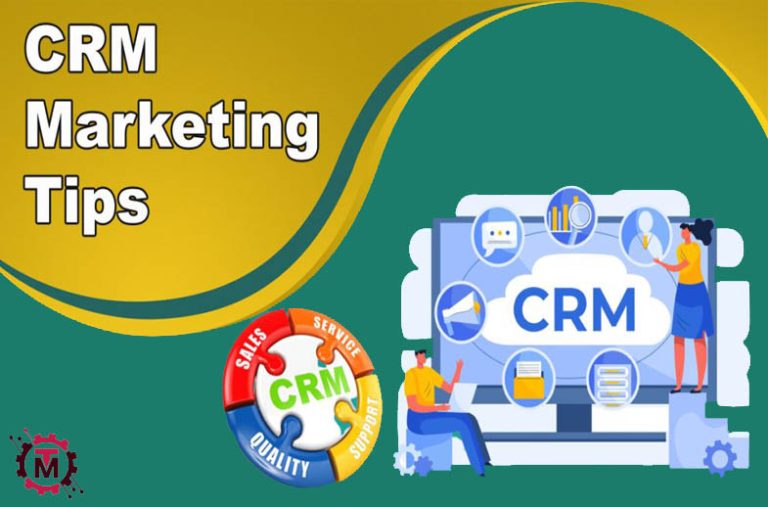If you run a CRM development and distribution business, choosing the right CRM marketing strategies can help you achieve exponential growth in no time. You have to ensure you follow the right marketing practices so that you can reach out to the right audience that can become your potential customers.
Besides providing you with a reach to the right audience, CRM marketing can help you build rich relationships with your existing customers.
That’s what we will try to demonstrate in today’s blog. Here, we are going to provide you with some of the best CRM marketing tips that can help you sell more CRM software to your customers. Let’s get started.
Best CRM Marketing tips to Sell More CRM Software:
Some of the very best CRM marketing tips that can help you sell more CRM software are listed below:
Narrow Down the Target Audience:
The very first tip that you have to follow is narrowing down the target audience. That is because marketing your CRM software to an audience that is not categorized or targeted will bring no results.
Narrowing down the target audience can help you understand their needs and wants in a better way. When you know these two factors, you can market your software accordingly.
Highlight Key Features and Benefits:
CRM software’s unique features and benefits set it apart from competitors. Highlight the benefits of streamlining operations, enhancing efficiency, strengthening customer relationships, and boosting revenue growth.
Provide Valuable Content:
Create informative and relevant content that educates potential customers about the importance of CRM and how it can benefit their businesses. Develop blog posts, whitepapers, case studies, and videos that showcase real-world success stories and best practices.
Informative Articles:
Write well-researched and comprehensive articles on topics that provide valuable insights, tips, and actionable advice to your audience. Break down complex concepts into easy-to-understand language and include relevant examples and case studies.
How-to Guides and Tutorials:
Create step-by-step guides and tutorials that walk your audience through a process or teach them a specific skill. Use visuals, screenshots, or videos to enhance the learning experience and make it more accessible.
Expert Interviews:
Conduct interviews with industry experts or thought leaders in your field. Ask insightful questions and share their valuable insights, experiences, and perspectives with your audience. This type of content adds credibility and provides unique perspectives.
Podcasts:
Host a podcast where you discuss important topics, interview experts, and share valuable insights with your listeners. You can cover a wide range of subjects based on your expertise or niche, providing informative and engaging content in an audio format.
Video Tutorials:
Create tutorials or instructional videos demonstrating how to perform specific tasks or learn new skills. Use visuals, screen recordings, animations, and clear explanations to make the content easy to follow and understand.
Info Graphics:
Design visually appealing infographics that present complex information or data in a concise and visually engaging format. Infographics are highly shareable and can be used to simplify complex concepts, statistics, or processes.
Case Studies:
Share real-life examples and case studies that illustrate successful strategies, problem-solving approaches, or best practices. Analyze the challenges, solutions, and outcomes to provide valuable insights and lessons to your audience.
Whitepapers and Research Reports:
Conduct in-depth research on a specific topic within your industry and publish a whitepaper or research report. Share your findings, analysis, and recommendations to provide valuable insights and contribute to the knowledge in your field.
Webinars and Online Courses:
Host webinars or create online courses that dive deep into a specific subject matter. Offer in-depth knowledge, practical tips, and interactive sessions to help your audience enhance their skills and understanding.
Created Content:
Assemble and curate valuable content from various sources, such as articles, videos, and podcasts, and provide your own insights and commentary. This type of content can save your audience time and effort by presenting them with valuable resources in one place.
Leverage Social Media:

Utilize social media platforms to engage with your target audience. Share valuable content, participate in industry discussions, and provide timely responses to inquiries. Leverage social media advertising to reach a wider audience and drive traffic to your website.
Offer Free Trials and Demos:
Allow potential customers to try your CRM software through free trials or provide live demonstrations to showcase its capabilities. This hands-on experience can build trust, highlight the software’s value, and increase the likelihood of conversion.
Establish Partnerships:
Collaborate with complementary businesses or industry influencers to expand your reach. Partnering with CRM consultants, technology integrators, or industry experts can help you tap into their network and gain credibility.
Implement Email Marketing Campaigns:
Build a targeted email list and design engaging email campaigns to nurture leads and convert them into customers. Provide valuable content, share product updates, and offer exclusive discounts or promotions to encourage conversions.
Customer Testimonials and Reviews:
Collect and display testimonials and reviews from satisfied customers to build trust and credibility. Positive feedback and success stories can be powerful persuaders for potential buyers.
Attend Industry Events:
Participate in relevant trade shows, conferences, and networking events to showcase your CRM software. These events provide opportunities to connect with potential customers, build relationships, and generate leads.
Offer Excellent Customer Support:
Provide exceptional customer support before, during, and after the sale. Promptly address inquiries, offer training resources, and ensure a smooth on boarding process. Satisfied customers can become brand advocates and refer your CRM software to others.
Remember, selling CRM software requires a deep understanding of your target audience’s needs, effective communication of your software’s value proposition, and building trust through testimonials and demonstrations. By implementing these tips, you can increase your chances of selling more CRM software types.
Conclusion
Choosing the right marketing strategies can help you grow your CRM software-selling business at an exponential rate. To do so, you have to follow certain CRM marketing tips to understand, communicate, and promote your software products effectively. Some of the most important tips in this regard are given in the information discussed above.







